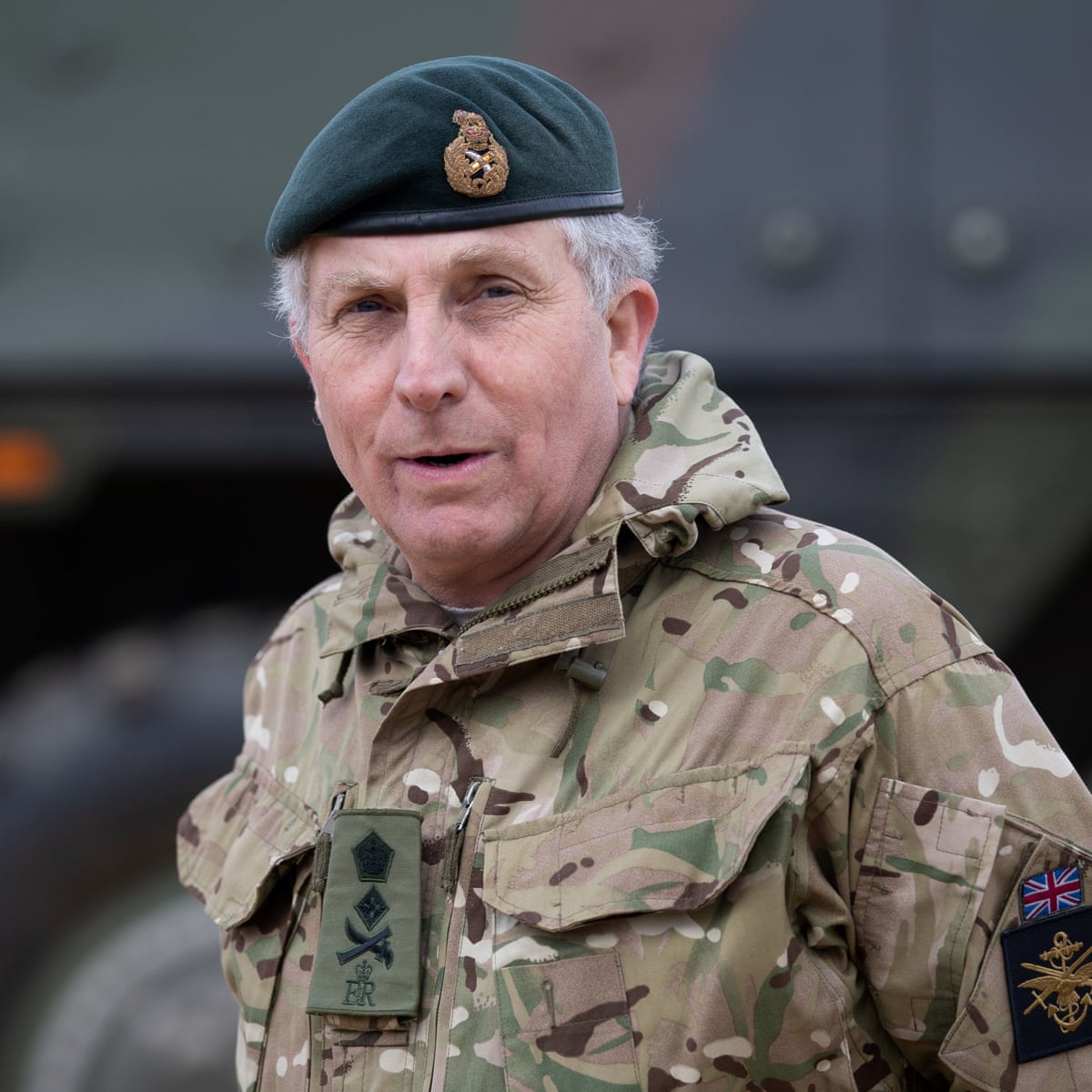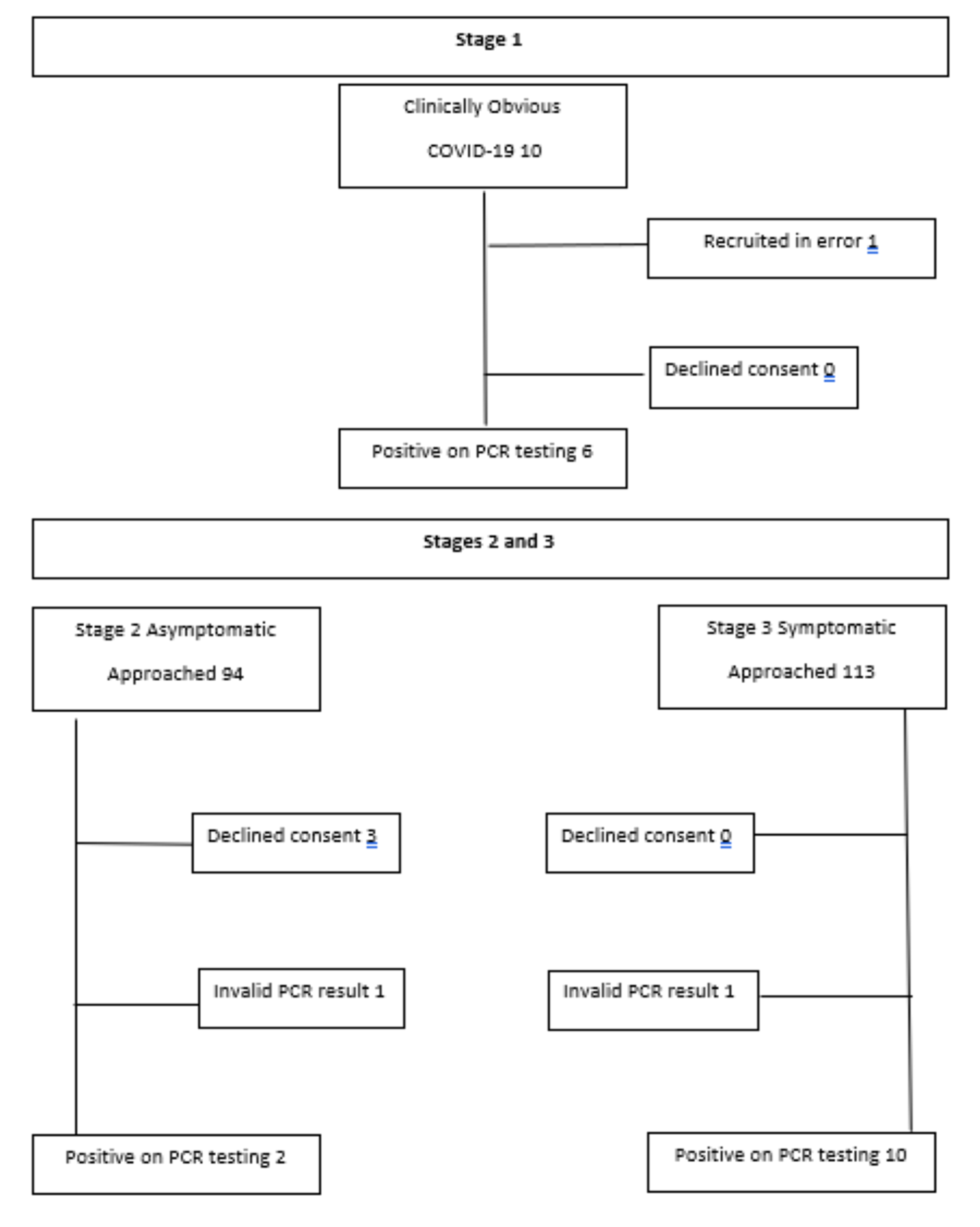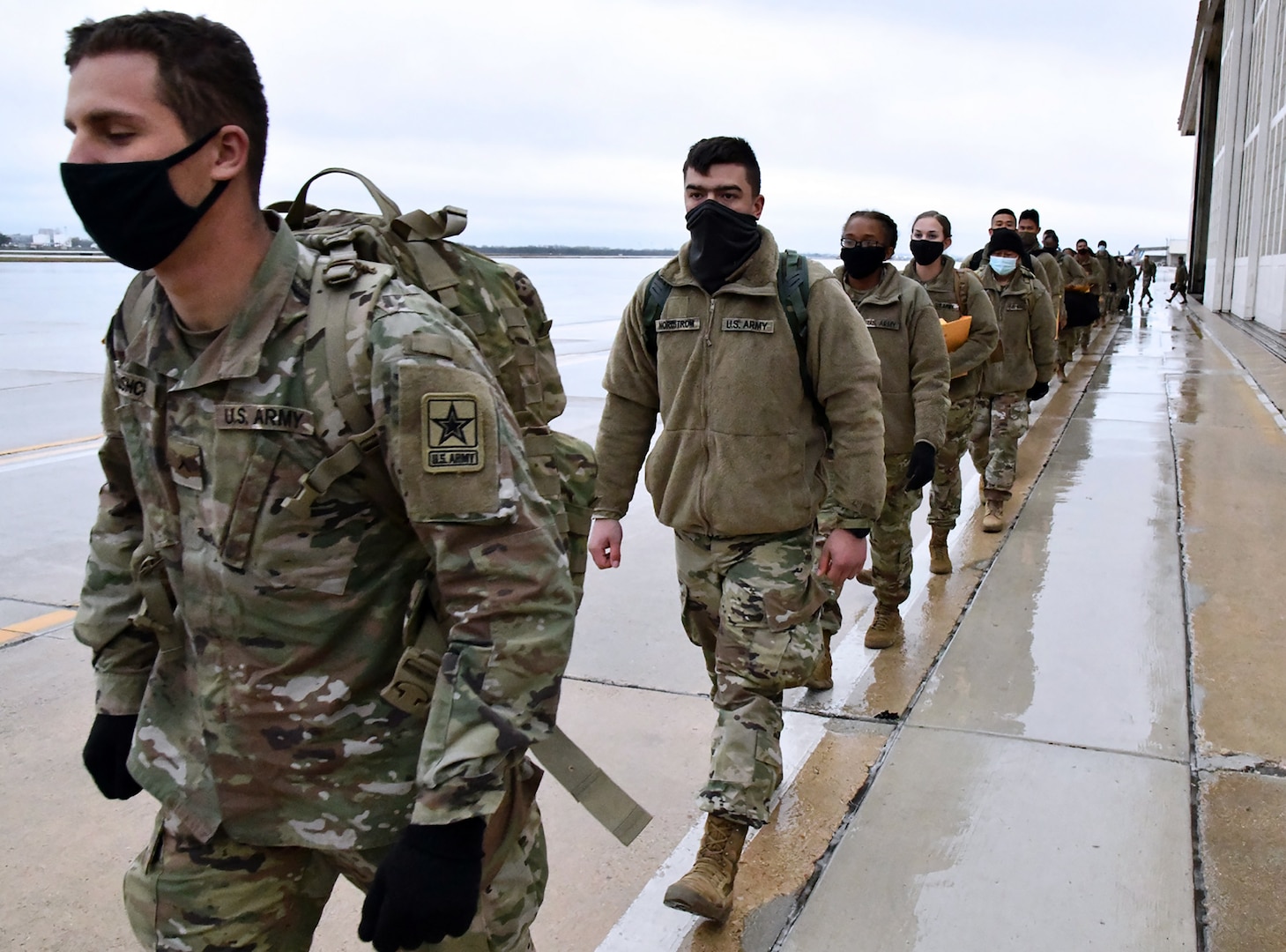Military Pcr Test - 1/7 Show caption + Hide caption - Milagros Sola, a Pacific Public Health Command microbiologist who works with ribonucleic acid, or RNA, demonstrates the team's new joint COVID-19 testing procedures to Brig. Gen. Jack Davis, commanding general of the Pacific Regional Health Command, at PHC-P's new COVID-19 testing laboratory, Dec. 3, 2020. (USA photo by Christopher Larsen, RHC-P Public Relations) ( Photo credit: USA ) ORIGINAL STORIES
2/7 Show caption + Hide caption - Milagros Sola, a microbiologist with the Pacific Public Health Command, works with ribonucleic acid, or RNA, as he demonstrates new methods for collaborative testing of COVID-19 given to the team of Brig. Gen. Jack Davis, commanding general of the Pacific Regional Health Command, at PHC-P's new COVID-19 testing laboratory, Dec. 3, 2020. (USA photo by Christopher Larsen, RHC-P Public Relations) ( Photo credit: USA ) ORIGINAL STORIES
Military Pcr Test

3/7 Show Title + Hide Caption - Spc. Darius Torres, a medical laboratory technician assigned to Pacific Health Command, Littlefield, Texas, demonstrates new joint COVID-19 testing procedures to Brig. Gen. Jack Davis, commanding general of the Pacific Regional Health Command, at PHC-P's new COVID-19 testing laboratory, Dec. 3, 2020. (USA photo by Christopher Larsen, RHC-P Public Relations) ( Photo credit: USA ) ORIGINAL STORIES
S.korea Widens Public Access To Virus Self Test Kits Amid Surge
4/7 Show Title + Hide Caption - Spc. Darius Torres, a medical laboratory technician assigned to the Pacific Public Health Command, Littlefield, Texas, analyzes and extracts ribonucleic acid, or RNA, during a demonstration of the team's new joint tests for the new COVID-19 test. Gen. Jack Davis, commanding general of the Pacific Regional Health Command, at PHC-P's new COVID-19 testing laboratory, Dec. 3, 2020. (USA photo by Christopher Larsen, RHC-P Public Relations) ( Photo credit: USA ) ORIGINAL STORIES
5/7 Show title + Hide caption - lieutenant colonel. Gerald Kellar, acting commander of the Public Health-Pacific Region COVID-19 Testing Surveillance Program at Joint Base Lewis-McChord, Washington, explains the team's new joint COVID-19 testing procedures to Brig. Gen. Jack Davis, commanding general of the Pacific Regional Health Command, at PHC-P's new COVID-19 testing laboratory, Dec. 3, 2020. (USA photo by Christopher Larsen, RHC-P Public Relations) ( Photo credit: USA ) ORIGINAL STORIES
6/7 Show title + Hide caption - lieutenant colonel. Gerald Kellar, acting commander of the Public Health-Pacific Region COVID-19 Testing Surveillance Program at Joint Base Lewis-McChord, Washington, explains the team's new joint COVID-19 testing procedures to Brig. Gen. Jack Davis, commanding general of the Pacific Regional Health Command, at PHC-P's new COVID-19 testing laboratory, Dec. 3, 2020. (USA photo by Christopher Larsen, RHC-P Public Relations) ( Photo credit: USA ) ORIGINAL STORIES
7/7 Show Title + Hide Caption - From left, Lt. Colonel Gerald Kellar; Command Sgt. Major Abuoch Neufville, commander of the Pacific Regional Health Command; Brigadier General Jack M. Davis, Commanding General of RHC-P; Milagros Sola, PHC-P microbiologist; and lieutenant. By Col. Christopher Larsen, Public Affairs RHC-P (Photo credit: USA ) Original view
Humasis Covid 19 Ag Test
Located at Joint Base Lewis-McChord in Washington, D.C., the new research lab will allow U.S. leaders to rapidly assess force health and improve mission readiness.
"The lesson tests are first for large troop movements going to training or deployment," explained Lt. Col. Gerald Kellar, acting head of the PHC-P test research program. "The goal is to find soldiers who may be asymptomatic carriers of the virus and reduce the spread of the virus in training centers and at low distances."
Unlike diagnostic testing for COVID-19, which targets individual soldiers and is usually based on a doctor's recommendation or determined through contact tracing, diagnostic testing targets groups of soldiers, regardless of symptoms or signs of exposure, using a pooled testing approach.

Pooled tests combine breath samples from multiple people and produce a single lab test to detect COVID-19, according to the Centers for Disease Control and Prevention.
Tyre Municipality Receives 510 Covid 19 Pcr Test Kits From Unifil
"Each soldier presents an individual pattern, and those patterns are combined into groups of five to 10," Kellar explained.
The CDC says the merger will allow labs to test more samples with fewer test materials, which could be useful when supplies are in short supply.
"So if we have a group of 5,000 soldiers going to a training base, that allows us to do only 500 tests instead of 5,000 individual tests," Kellar said.
Kellar explained that the delivery of emergency supplies, such as advice on reagents and pipelines for test kits, can be difficult during a COVID-19 outbreak. Pooling allows the military to conserve resources while also preventing further spread.
The Covid 19 Testing Supply Chain Wasn't Ready For Omicron
In addition to saving supplies, diagnostic testing also saves time because doctors can screen a subset of soldiers from their location rather than sending large groups of soldiers to a local military treatment facility for testing.
"Once the medics have collected all the swabs, departments can email them to one of the new diagnostic labs or just bring them in," Kellar said.
By processing the collected samples, microbiologists and laboratory technicians can quickly determine whether groups of soldiers are healthy and ready for training or deployment.

According to the CDC, one of the biggest advantages of screening tests is that if a pooled test result is negative, all samples in the same pool can be considered negative with the same test. In other words, it can be assumed that everyone who submitted samples tested negative for COVID-19.
Idf Puts Troops Back In Separated Pods As Covid Tears Through Army
If the test result is positive or negative, all samples in the pool must be retested individually using the diagnostic test.
"If the pool is positive, we can isolate this group of asymptomatic soldiers and prevent further spread," Kellar said. “Using a soldier is very dangerous; There are all kinds of injuries.
"We don't want them to be in close proximity to each other like a Humvee or a tank that can spread the virus. So this test will reduce those risks and help us return to normal military operations," he continued.
One way the new diagnostic labs will help bring military operations closer to normal is by reducing the potential spread of COVID-19 during travel.
Abbott Binaxnow™ Covid 19 Ag Card Home Test With Emed Telehealth Services For Travel
"A lot of people couldn't travel because of the risk of infecting others or infecting themselves," Kellar said. "Ultimately, this could be something we can do on a large scale that eases the burden of travel." "
In the coming months, testing capabilities will continue to expand throughout the Indo-Pacific as PHC-P opens its remaining three COVID-19 diagnostic testing laboratories in Hawaii, South Korea and Japan.
"Laboratories in Hawaii and Korea will begin operating in early March," Kellar said. “Japan will be faster; I would say before the first year."
Although the joint trial was initially for personnel only, PHC-P continues to work throughout the Indo-Pacific region to protect, strengthen and improve the health of forces and their families.
Army Health Clinic Bg Crawford Sams Camp Zama > Patient Resources > Travel Medicine
"I want people to know that these diagnostic labs are important," Kellar said. "Historically, military service is known as one of the most reliable public services in the country. We must ensure that our soldiers are ready for their mission. He has a much bigger mission than going to war; we need people trained and ready to respond. .
1/2 Show caption + Hide caption - A paratrooper assigned to the 173rd Airborne Brigade receives a PCR COVID-19 diagnostic test from staff at the Hungarian Defense Forces Medical Center during Swift Response 21 at Papa Air Base, Hungary. Our Hungarian friends' COVID testing will increase the rate at which U.S. forces see results that improve the brigade's ability to advance safely and confidently to its next objective. Swift Response 21 will take place May 6-11 as part of the DEFENDER-Europe 21 air operation. It demonstrates the US European Command's ability to deploy high-readiness forces to a designated area by conducting air exercises involving strategic jumps. on the Joint Forcible Entry (JFE) of the three countries to capture the main land. (U.S. photo by Staff Sgt. Jacob Sawyer) (Photo credit: Staff Sgt. Jacob Sawyer) Original view
On April 20, 2022, they separated 345 soldiers for refusing to receive a legal order for the COVID-19 vaccine.
So far, commanders have fired six regular leaders, including two battalion commanders, and 3,364 general officers have filed written complaints against regular soldiers for refusing vaccinations. .
Covid 19 Testing
Vaccination rates will change slightly as troops enroll and disperse and continue to improve data tracking processes.
They will not release additional information on waivers and exemptions from the US Reserve and US National Guard until June 30.
Military drone range, laser range finder military, military range bags, military range targets, long range military radio, military radio range, military range finder, military long range binoculars, range rover military discount, military range rover, range of military drones, military range bag

0 Comments